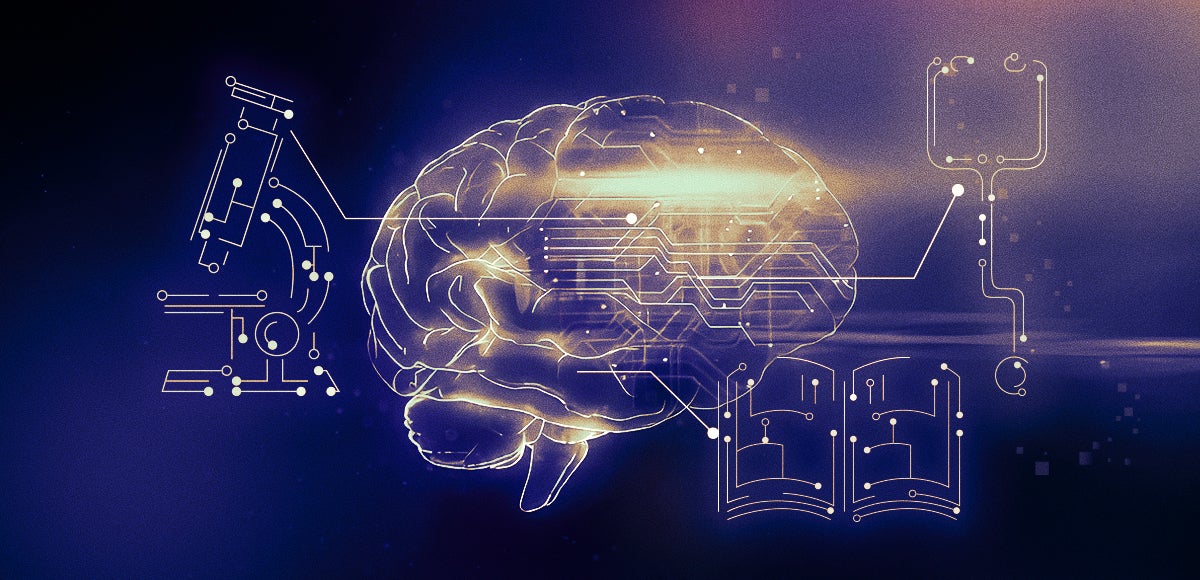
Welcome to the era of intelligent travel! As technology continues to advance at an unprecedented pace, the travel industry is embracing the power of Artificial Intelligence to enhance every aspect of our wanderlust-filled adventures. From booking flights and accommodations to finding hidden gems off the beaten path, AI is revolutionizing how we discover destinations.
We will dive into the world of AI recommendations and explore how this innovative technology is reshaping destination discovery. Get ready to embark on a journey where algorithms become your personal tour guides, leading you towards unforgettable experiences with expertise that goes far beyond human capabilities.
So fasten your seatbelts and prepare for takeoff as we delve into the rise of AI in the travel industry and uncover its incredible benefits in enhancing destination discovery. Let’s explore how these smart recommendations work their magic and examine real-life case studies where AI has proven its worth. But first, let’s understand why AI has become such a game-changer in today’s digital age.
The Rise of Artificial Intelligence in Travel Industry
The travel industry has always been dynamic, constantly adapting to meet the changing preferences and needs of travelers. In recent years, however, the rise of Artificial Intelligence (AI) has introduced a new wave of transformation that is revolutionizing how we explore the world.
AI technology is no longer confined to science fiction movies; it is now an integral part of our everyday lives. From virtual assistants like Siri and Alexa to personalized recommendations on streaming platforms like Netflix, AI has seamlessly integrated into various industries. And the travel industry is no exception.
With its ability to process vast amounts of data at lightning speed, AI has become a game-changer in destination discovery. It can analyze traveler preferences, past behaviors, and even external factors such as weather patterns or local events to offer tailored recommendations that resonate with individual travelers.
Gone are the days when we relied solely on guidebooks or generic online suggestions for trip planning. Thanks to AI algorithms and machine learning capabilities, we now have access to highly personalized recommendations that take into account our unique interests and preferences.
AI-powered virtual assistants are transforming customer service in the travel industry. Chatbots equipped with natural language processing can assist travelers by answering queries about flights, accommodations, attractions and more – all without human intervention! This not only saves time but also allows for 24/7 availability across different time zones.
As more businesses in the travel industry adopt AI technologies such as recommendation systems and chatbots, they gain valuable insights into their customers’ behavior patterns. This knowledge enables them to improve their services further by anticipating customer needs and providing exceptional experiences tailored specifically for each individual traveler.

The Benefits of AI in Destination Discovery
Artificial Intelligence has revolutionized various industries, and the travel industry is no exception. When it comes to destination discovery, AI brings a host of benefits that enhance the overall travel experience.
One significant benefit is personalization. With AI-powered recommendations, travelers can receive tailored suggestions based on their preferences and interests. This enables them to discover hidden gems and unique experiences that they might have otherwise missed out on.
AI also helps simplify the planning process by providing real-time information about destinations. From weather updates to crowd levels at popular attractions, travelers can make more informed decisions and avoid unnecessary hassles.
Another advantage of AI in destination discovery is its ability to analyze vast amounts of data quickly. By analyzing user behavior patterns and historical data, AI algorithms can predict future trends and recommend destinations that align with individual traveler’s preferences.
AI recommendations facilitate serendipitous discoveries by suggesting off-the-beaten-path locations or activities that match a traveler’s interests but may not be well-known yet. This encourages exploration beyond traditional tourist spots and offers unique experiences for adventurous souls.
AI helps streamline the booking process by integrating with online travel platforms. Travelers can easily find accommodations, flights, and activities based on their personalized recommendations without having to search through countless options themselves.
Leveraging AI in destination discovery allows businesses in the travel industry to gain valuable insights into customer preferences. By understanding what drives travelers’ choices, companies can optimize their offerings and tailor marketing strategies accordingly.
How AI Recommendations Work
AI recommendations have become an integral part of our daily lives, from suggesting movies on streaming platforms to recommending products while shopping online. But how do these intelligent algorithms work when it comes to destination discovery in the travel industry?
At its core, AI recommendations rely on complex machine learning models that analyze vast amounts of data. These models are trained using historical user behavior and preferences, as well as other relevant factors such as location, time of year, and budget.
When a user searches for a travel destination or provides some initial criteria like preferred activities or interests, the AI system springs into action. It sifts through enormous databases filled with information about various destinations around the world.
The algorithm then compares this data against the user’s profile and preferences to generate personalized recommendations. It takes into account factors like previous bookings, ratings given by similar users, social media activity related to travel experiences, and much more.
AI systems can incorporate real-time information from trusted sources such as weather forecasts and local events happening at the desired destination. This ensures that the recommendations remain up-to-date and relevant for travelers.
By continuously refining their algorithms based on feedback from users’ interactions with recommended options, these systems improve their accuracy over time. They learn from both individual choices and collective behaviors to provide increasingly precise suggestions tailored to each traveler’s unique tastes.
AI recommendations harness advanced machine learning techniques to process vast amounts of data about destinations and match them with individual preferences in order to deliver highly personalized suggestions for travelers seeking new adventures. So next time you’re planning a trip but feeling overwhelmed by all your options – let AI be your guide!

Successful Implementation of AI Recommendations
One of the most exciting aspects of AI in destination discovery is its ability to provide personalized recommendations based on individual preferences and travel behavior. Several travel companies and platforms have successfully implemented AI recommendation systems, revolutionizing the way we discover new destinations.
In a case study conducted by a leading online travel agency, they implemented an AI-powered recommendation engine that analyzed user data such as search history, booking patterns, and social media interactions. By combining this data with machine learning algorithms, the platform was able to generate highly accurate recommendations tailored to each user’s interests and preferences.
Another case study involved a popular travel app that utilized AI recommendations to enhance their users’ experience. The app collected data from various sources including user reviews, ratings, and previous bookings. With this information, it generated personalized suggestions for attractions, restaurants, and activities at each destination.
A major hotel chain also embraced AI recommendations to improve their guests’ stay. By analyzing guest preferences gathered through surveys and feedback forms, they were able to suggest nearby tourist spots or local events that matched their interests.
These successful implementations demonstrate how AI can greatly enhance destination discovery by providing relevant suggestions based on individual needs and preferences. Through advanced algorithms and deep analysis of large datasets in real-time, travelers are now empowered with tailored recommendations that ensure truly memorable experiences during their journeys.
The possibilities for implementing AI in destination discovery are endless – from recommending lesser-known hidden gems to suggesting offbeat itineraries based on specific interests like adventure sports or culinary delights. As technology continues to advance rapidly in the coming years, we can expect more innovative applications of AI in the travel industry.
AI powered chatbots could soon become virtual tour guides offering real-time assistance throughout your trip – answering questions about directions or making restaurant reservations seamlessly within messaging apps!
As these success stories show us what is possible today with AI-driven recommendation systems; it’s evident that artificial intelligence has tremendous potential not only in revolutionizing destination discovery but also in providing unparalleled personalized travel experiences.
Future Possibilities and Innovations in AI for Travel
The advancements in artificial intelligence have the potential to revolutionize the travel industry even further. As technology continues to evolve, so do the possibilities and innovations in AI for travel.
One exciting area of development is personalized recommendations based on individual preferences and previous travel experiences. By analyzing vast amounts of data, AI algorithms can suggest destinations, accommodations, activities, and even local restaurants that match a traveler’s unique interests. This level of personalization enhances the overall travel experience by providing tailored recommendations that go beyond generic suggestions.
Another area where AI can make a significant impact is customer service. Chatbots powered by natural language processing are becoming increasingly sophisticated, allowing travelers to interact with virtual assistants 24/7. These chatbots can provide instant answers to frequently asked questions, offer real-time support during trips, and even assist with booking arrangements.
As AI technology advances, we may see more integration with smart devices like wearables or virtual reality headsets. Imagine receiving real-time updates on flight delays directly through your smartwatch or immersing yourself in a virtual tour of your destination before you even book your trip.
There are also opportunities for collaboration between airlines and AI systems to improve operational efficiency. Predictive analytics could help optimize flight schedules based on historical data patterns while minimizing disruptions caused by weather conditions or maintenance issues.
Blockchain technology combined with AI has the potential to enhance security measures within the travel industry. By leveraging decentralized networks and machine learning algorithms together, it becomes easier to detect fraudulent activities such as identity theft or counterfeit bookings.
As we look ahead into the future of AI in travel, there are undoubtedly endless possibilities waiting to be explored. From enhanced personalization and improved customer service to seamless integrations with smart devices and innovative collaborations across industries – these innovations will continue shaping how we discover destinations and experience our travels.
Conclusion
Artificial Intelligence is revolutionizing the travel industry, and one area where it has made a significant impact is in destination discovery. By harnessing the power of AI recommendations, travelers can now enjoy personalized and curated travel experiences like never before.
The benefits of AI in destination discovery are vast. With its ability to analyze massive amounts of data and understand individual preferences, AI can suggest destinations that match a traveler’s interests and preferences. This not only saves time but also ensures that every trip is tailored to meet their unique needs.
Through machine learning algorithms, AI recommendations continuously learn from user behavior and feedback, allowing them to refine their suggestions over time. This iterative process ensures that the recommendations become more accurate and relevant with each interaction.
Several success stories highlight how companies have successfully implemented AI recommendations in their travel platforms. From major OTAs incorporating personalized hotel suggestions based on customer preferences to airlines offering customized itineraries based on previous bookings, these examples demonstrate how AI is enhancing the overall travel experience for consumers.
Despite its numerous benefits, there are still challenges and limitations associated with using AI in destination discovery. Privacy concerns remain an issue as personal data needs to be collected for effective recommendation systems. Additionally, there may be cases where the algorithm fails to capture certain nuances or overlooks less popular destinations due to limited historical data.
Looking ahead, we can expect further advancements and innovations in AI technology for travel purposes. As more users provide feedback and interact with recommendation systems, these algorithms will continue to improve accuracy while becoming smarter at understanding individual tastes and preferences.
Artificial intelligence has transformed destination discovery by providing travelers with personalized recommendations that cater specifically to their desires. As this technology continues to evolve and overcome existing challenges, we can anticipate exciting possibilities for even more enhanced travel experiences in the future.

